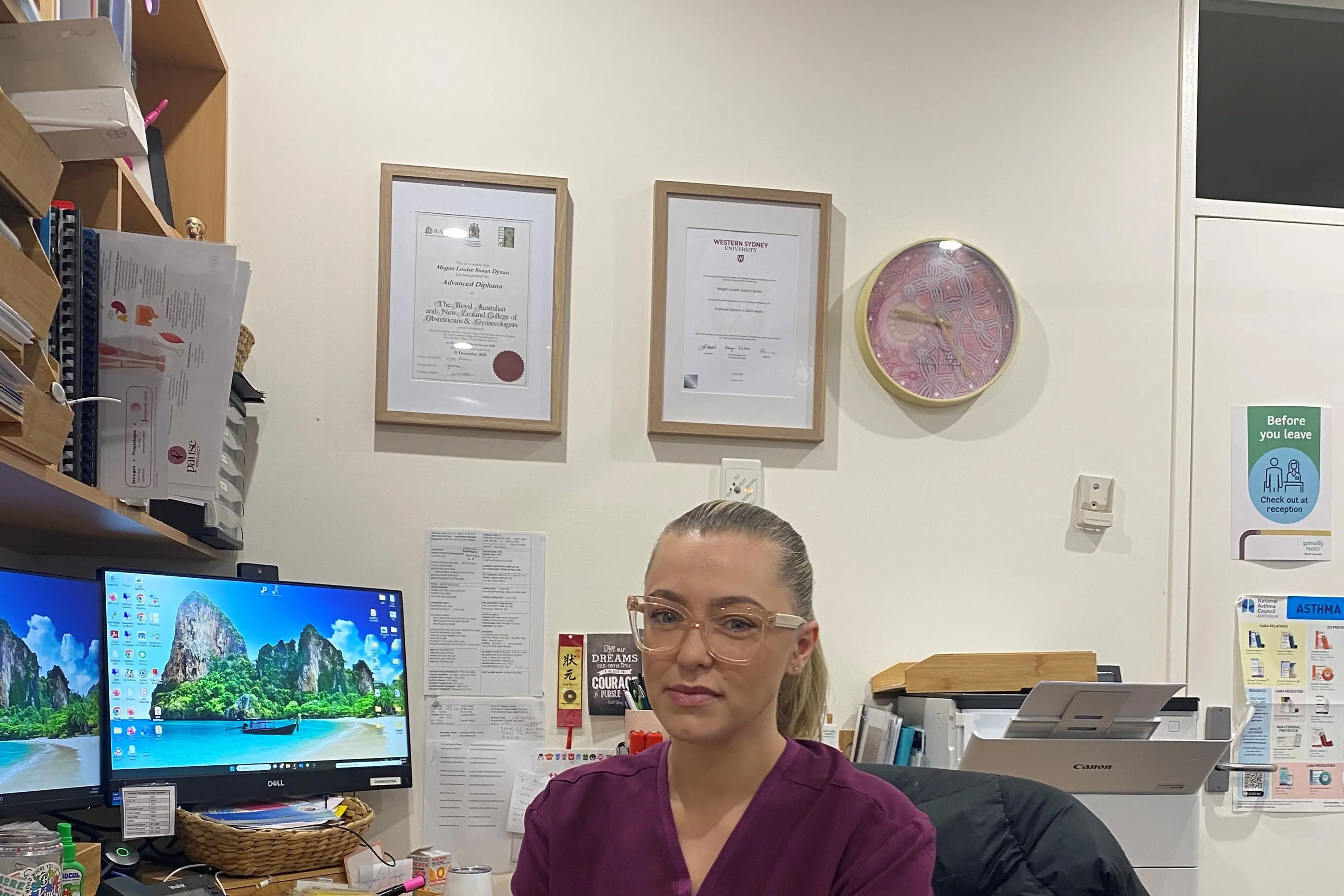PHOTO
GPs have called on all levels of government to improve access to mental health support, particularly in rural and remote communities, including a boost to patient rebates for longer GP consults.
It comes following the Royal Australian College of GPs (RACGP) launched a new position statement on the provision of mental health services in rural Australia.
For Wangaratta based GP at Gateway Health, Dr Megan Dynan, up to 80-90 per cent of her consults are related to mental health and wellbeing.
“What each clinician sees is going to differ,” she said.
“Essentially every single consult is mental health related because no chronic disease or physical ailment comes without a degree of impact on someone's mental health or their psychosocial wellbeing.
“If somebody loses time off work because of an injury, that impacts their well-being, and you're having to manage and support them through that.
“With the complexity of the patients that we're seeing, with the limitations in being able to access the doctor in a timely way, the issues are becoming greater, more complicated, and there's a lot more impact on people's wellbeing and mental health.”
Rural patients face significant barriers to care, including long GP wait times up to six to eight weeks, limited access to specialists, and Medicare rebate changes that reduce funding for mental health consultations.
Dr Dynan said these issues, coupled with high out-of-pocket costs, disproportionately affect vulnerable populations.
"Unfortunately there are some changes coming to Medicare where they are going to be taking away some rebates, which are the patients' entitlement to have funding for mental health consultations," she said.
"This will impact the quality of care.
"The long wait times, not only for GP, but for all services, and the high out-of-pocket costs, I'm seeing the most vulnerable and the lowest socioeconomic populations in Wangaratta suffer the most."
Dr Dynan said said GPs need more support to provide the care patients need.
"I take a holistic approach, I treat the whole patent" she said.
"The complexity of the patients and managing mental health all day is adding to the degree of burnout among clinicians and my colleagues.
"It would be less exhausting if we had more support to provide the services that patients need."
RACGP president Dr Michael Wright said that the time to act was now.
“Australia is in the middle of a mental health crisis, and more must be done to ensure all patients, including those living in remote and rural areas, can access the mental health services they need,” he said.
“In our own Health of the Nation Report 2025, launched earlier this week, 71 per cent of GPs nominated mental health concerns as a top reason for patient presentations, up 10 per cent since the survey began in 2017.
“By boosting patient rebates for longer consults, GPs can take the time needed to deliver the highest quality of care.
"Complex consults, including for mental health concerns, can’t be rushed. The problem is that Medicare is structured in a way that encourages ‘six-minute medicine’, and this must change.”
Julia Henning, operations manager for Wellways (Mental Health and Wellbeing Local in Benalla, Wangaratta and Mansfield) said they work closely with GPs, allied health professionals and community services across Wangaratta.
“We welcome referrals from any pathway,” she said.
“At the same time, we know it’s important for people to have the option to reach out directly for support when they need it.
“The Mental Health and Wellbeing Local is an open-door service - whether you come through a GP or reach out directly, you’re always welcome to access support without a referral or Medicare card.
“Every individual and family has unique needs - some have long-standing relationships with their GP and prefer that pathway, while others feel more comfortable coming to us directly.
“However you choose to connect, our team is here to help in whatever way works best for you.
“Wellways operates the Mental Health and Wellbeing Local in Wangaratta where our team can walk alongside you to support you in the way that works best for you – whether that’s peer-navigation, counselling, support with misuse of alcohol and drug, creative therapies, or wellbeing and prevention programs.”





